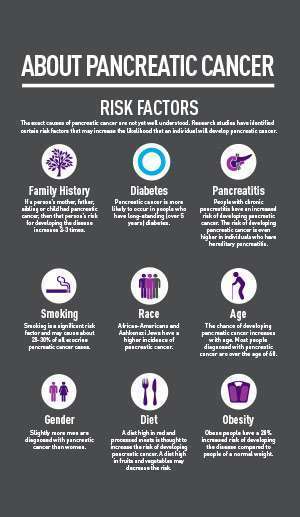
 As a risk factor, smoking is thought to contribute to about 20 percent of pancreatic cancer cases. Now, new research indicates that individuals who are current-smokers when diagnosed with pancreatic cancer have a nearly 40 percent increased risk of dying as compared to those who have never smoked.
As a risk factor, smoking is thought to contribute to about 20 percent of pancreatic cancer cases. Now, new research indicates that individuals who are current-smokers when diagnosed with pancreatic cancer have a nearly 40 percent increased risk of dying as compared to those who have never smoked.
The study, published in the Journal of Clinical Oncology and featured on Oncology Network, describes an analysis of more than 1,000 pancreatic cancer patients. Smoking status was either self-reported or indicated by levels of a component of nicotine, called cotinine, which is measurable in patients’ blood.
“We’ve known for a while that smokers are at higher risk of developing pancreatic cancer,” said Victoria Manax Rutson, MD, chief medical officer for the Pancreatic Cancer Action Network. “But this study provides the first clear evidence that smokers are also at a higher risk of dying from the disease.”
In fact, the research team showed that the decrease in survival was directly tied to pack-years, or the number of packs of cigarettes smoked per day multiplied by the number of years the person has smoked – indicating that the more, and the longer, someone smoked, the poorer their outcome.
“However, the encouraging finding was that former-smokers’ risk of dying from pancreatic cancer was essentially the same as never-smokers,” Manax Rutson continued. “This provides further evidence that smoking cessation could have a very positive impact on people’s health – especially for those who are already at higher risk of developing pancreatic cancer.”
If you have two or more first-degree relatives who have had pancreatic cancer, a first-degree relative who developed pancreatic cancer before the age of 50, or an inherited genetic syndrome associated with pancreatic cancer, you may have an increased risk of developing pancreatic cancer. The Pancreatic Cancer Action Network strongly recommends consulting with a genetic counselor to determine your risk and eligibility for a screening program.
We are here to help if you have any questions about your risk or for resources to help quit smoking.

Brian Wolpin, MD, MPH
The lead author of the study is Brian Wolpin, MD, MPH, who was recently promoted to become the Robert T. and Judith B. Hale Chair in Pancreatic Cancer at Dana-Farber Cancer Institute in Boston.
Wolpin is co-principal investigator for the Pancreatic Cancer Action Network’s largest-ever grant: the $2 million Research Acceleration Network-2 Grant, supported by the generosity of The Henry and Marilyn Taub Foundation in memory of Shirley Sadoff. He was also selected as the principal investigator for the Dana Farber/Harvard Cancer Center Clinical Trial Consortium site for Precision PromiseSM, the first large-scale precision medicine trial for patients with pancreatic cancer.
Please contact us with any questions about this study, determining your risk or any other pancreatic cancer-related topics.





